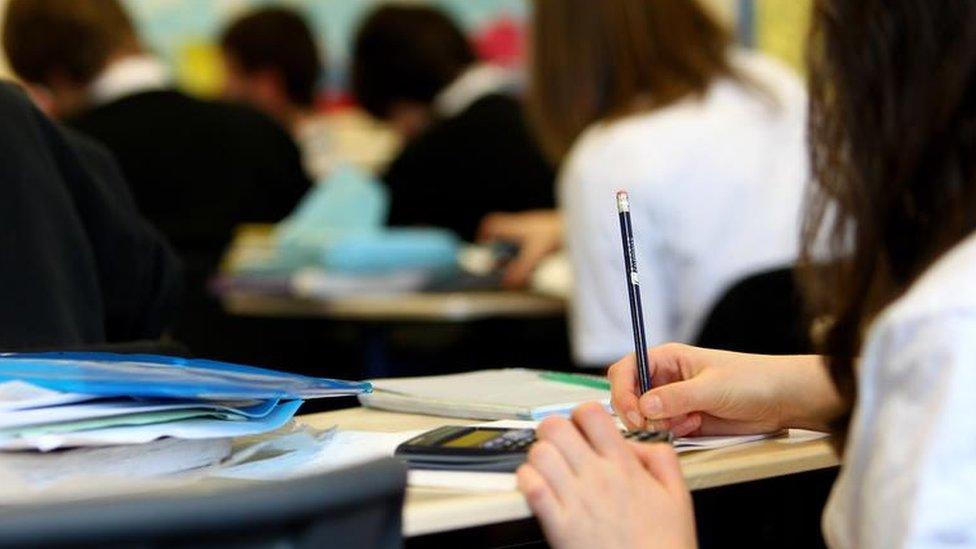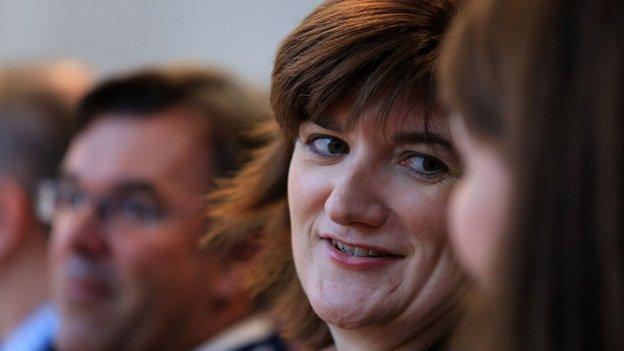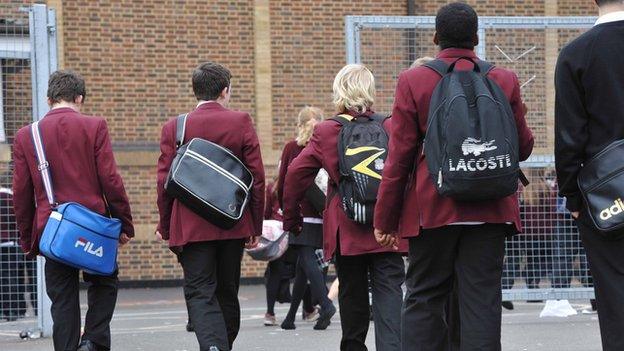Sponsors lose control of 119 failing academies
- Published

There are 973 academy trusts running schools in England
More than 100 failing academies have been removed from their sponsors and placed in new trusts, MPs have heard.
England's schools commissioner Sir David Carter told the Commons Education Committee 119 academies had been "re-brokered" as a last resort.
Some academies were performing no better than the failing schools from which they had taken over, he told MPs.
But he stressed the academies his team were most concerned about were being challenged and supported to improve.
Sir David said of the 973 functioning multi-academy trusts in England, only seven had been inspected by Ofsted as part of a process known as "batched inspections".
'Disruptive'
This is where a number of schools in an academy trust are inspected as a group because of concerns raised about performance.
Following these seven batched inspections, Ofsted reported concerns about the outcomes for pupils and accused some of the trusts of sitting on large sums of cash that should have been spent on pupils.
Sir David said: "There are academies that are performing not better or minimally better than the schools they were before.
"The commitment these sponsors made was to improve these schools rapidly."
Of the academies that had been re-brokered since September 2014, 68 had gone from a multi-academy trust to another multi-academy trust and 51 and gone from a single academy trust to a multi-academy trust, he said.
'Empire building'
The "re-brokerage solution" was an important tool for regional schools commissioners challenging under-performance, he said, but it was also disruptive and expensive and affected the children at the school.
On the whole, regional commissioners, who are charged with overseeing standards in the academy system, tried to get involved with struggling academies before they got so bad that there was no other option but to find another sponsor and new management, Sir David said.
Ofsted chief Sir Michael Wilshaw, also giving evidence, said some multi-academy trusts had "been allowed to grow to far too quickly, without the capacity to improve their individual schools".
He said: "There was a lot of empire building going on and executive head teachers who wanted to show how many schools they had rather than whether they were any good or not."
Sir David agreed that expansion had sometimes been too quick in the past, but suggested the situation had improved in recent years.
- Published7 December 2015

- Published30 January 2015
